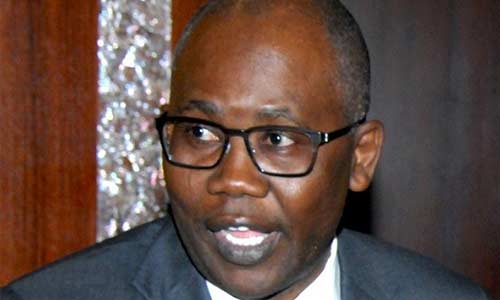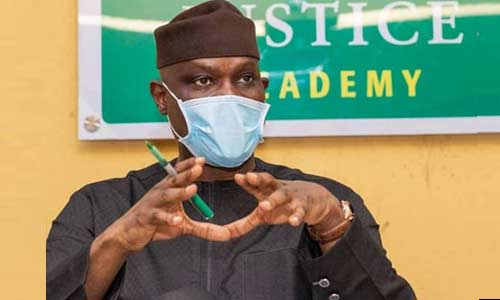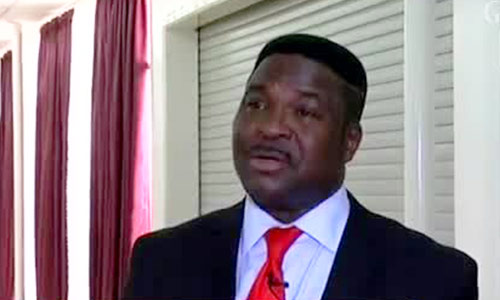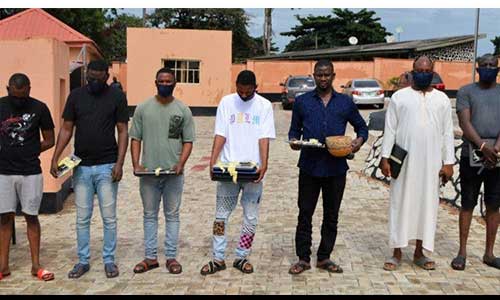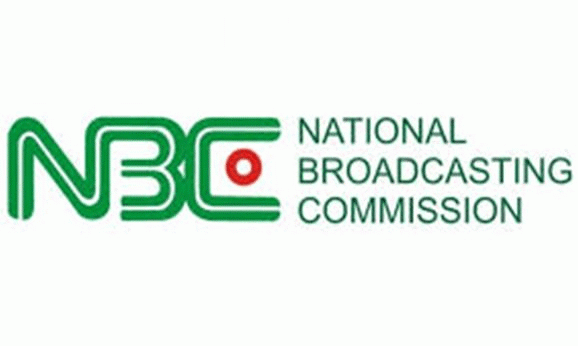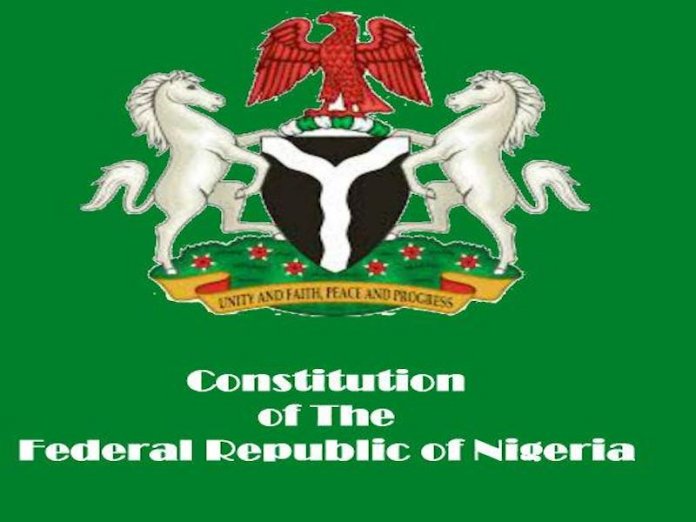By Chief Mike Ozekhome, SAN
INTRODUCTION
Why has the new Companies and Allied Matters Act, 2020 (CAMA) generated so much hoopla and controversy? It is because its unique provisions make it possible for CAMA officials to take over a Church, Mosque, or an NGO, appoint a Bishop, Imam, Overseers, or Executive Director of their choice, and even decide what sermon, homily or Khutbah shall be disseminated to the adherents. This sounds like a fairy tale. But, it is real, if not carefully handled.
On the 7th of August 2020, President Buhari signed the CAMA into Law. The Act repeals the Companies and Allied Matters Act, of 2004. The Act addresses the lapses in the old Act and equally introduces new provisions to regulate businesses in line with international best practices. It has been hailed in several quarters as the most important business legislation to come out of Nigeria in the last thirty years. However, despite the resonating plaudits generated by the Act, in numerous quarters, we must be circumspect and cautious in our euphoria and cyber-rattling. There is need for this cautious oxymoron of making haste slowly”.
SOME LITTLE HISTORY
The new CAMA has roots in the Companies Act, 1968. However, the 1968 Act had itself been repealed by the CAMA Act of 1990; which improved on the 1968 Act.
With the passing of the new CAMA bill to amend the 1990 CAMA by both Houses of the NASS since 2019. However, in the snail like pace and frustrating nonchalance that the Buhari administration has become typically legendary and accustomed to, there was neither an assent nor a veto of the Bill by the President throughout the remainder of President Buhari’s first tenure. The Bill for the amendment of CAMA, 1990, had to be represented to the Senate by the current Senate Leader, Senator Abdullahi Yahaya. It was subsequently passed by the Senate on10th March, 2020.
It again took the President over six months to finally assent to the Bill on 7thAugust, 2020.This was the first major challenge of the Act that raised eyebrows, having regard to section 58(4) of the Constitution which gives the President only thirty days from the day that a Bill is presented to him to grant Presidential assent or refusal. In the case of the amended CAMA, 2020, it took over six months after the amendment bill had been passed by the NASS for the President to grant his assent. Is the 2020 CAMA Act constitutional?
The provision of Section 839 of CAMA has generated much hoopla and ruckus. A barrage of criticisms from churches, the Civil Society and of course, public commentators, has since visited it.The contentious Section 839 of CAMA provides:
“(1) The Commission may by order suspend the trustees of an association and appoint an interim manager or managers to manage the affairs of an association where it reasonably believes that:
(a) there is or has been any misconduct or mismanagement in the administration of the association;
(b) it is necessary or desirable for the purpose of —
(i) protecting the property of the association,
(ii) securing a proper application for the property of the association towards achieving the objects of the association, the purposes of the association of that property or of the property coming to the association,
(iii) public interest; or
(c) the affairs of the association are being run fraudulently.
(2) The trustees shall be suspended by an order of Court upon the petition of the Commission or members consisting one-fifth of the association and the petitioners shall present all reasonable evidence or such evidence as requested by the Court in respect of the petition”.
In a nutshell, Section 839 of CAMA 2020 states that the Corporate Affairs Commission can unilaterally suspend the trustees of any Association that is registered as Incorporated Trustees, such as the Heads of churches, Mosques,Executive Directors of NGOs, etc. The Section goes on in a mindless arrogation of supremacy to the CAC over the Constitution, to provide that such trustees can be removed where the Commission “reasonably believes” that the trustees are involved in “misconduct or mismanagement in the affairs of the association”; or where the removal of the Trustees would be necessary for the protection of the property of the Association; or where the removal of such trustees is “in public interest”; etc. This Section also appears to donate untrammeled powers to the CAC, to usurp the investigative powers of law enforcement agencies.
This provision virtually confers supremacy on the CAC over constitutional provisions, to the extent that the CAC can remove the trustees of an Association based solely on its“reasonable belief”. This portends danger for Nigeria’s fragile and already over conscripted civic space, because by virtue of the amended CAMA, all that would be required to remove the Executive Director or the General Overseer or Bishop of a registered Church,or Imam of a Mosque whom the Government is not comfortable with, is the magical wand of“reasonable belief” that such Executive Director, General overseer or Bishop has been involved in the mismanagement of the NGO or Church. This is arbitrary, whimsical and capricious. Also affected by the section 839 are charitable organizations, educational institutions, socio-cultural organizations and clubs, etc.
Where is the right to fair hearing guaranteed by section 36 of the 1999 Constitution,which is the grundnormand the font et origo of Nigeria’s statehood?
The mere fact that the CAC can unilaterally remove the Trustees of an Association on nothing more than its “reasonable belief” of “misconduct”by the trustees is ominous – not just for the Associations, but also for the entire civic space.
Section 839(2) CAMA however appears to douse this fear by providing that “the trustees shall be suspended by an order of court upon the petition of the Commission or Members consisting of one-fifth of the association and the petitioners shall present all reasonable evidence or such evidence as requested by the court in respect of the petition”.
If one may ask, what are the conditions precedents before a case for the removal or suspension of a Trustee for 12 months can be instituted based on a petition by the CAC,which leads to appointment of trustees for “the proper administration of the association”? Yes, the CAC can even appoint an interim manager to act as receiver and manager over the church’s property.
Furthermore, the grounds for the unilateral removal of the trustees of an association by the CAC are, to say the least, quite vague. For example, Section 839(1)(b)(iii) basically entails that the CAC can remove the trustees of an association “in the interest of public interest”. What is this “public interest?”.Who determines it? What is the measure of “public interest”?The vagueness of some decisive terms is definitely problematic. As a budding journalist, David Hundeyin, explained, “the Buhari Administration or any of its successors can now legally take over Amnesty Nigeria,SERAP or any similar organisations it has previously antagonised openly, if their definition of “public interest” means “the government must not be embarrassed.” Surely, this is dangerous for our already overburdened democracy.
THE FEARS
The amended CAMA 2020 attempted to enhance the ease of doing business in Nigeria and to generally bring Nigeria up to speed with globally accepted best practices. But, in trying to do so, the Act has become a burdensome albatross on the neck of civil societies, the Church and Mosque. It presents a ready opportunity for the Nigerian State apparatus to further shrink Nigeria’s civic state, and unleash its deadly arsenal on opposition, rights Activists, dissenters and critics of government.
To this end, these identified negative aspects of the amended 2020 CAMA should be resisted by all men and women of goodwill Civil societies and religious bodies (who are the main targets of the Act) must instigate a serious legal challenge to ensure that the Act does not bastardise their activities. The validity and constitutionality of these sections of the Act must be tested at every level of courts in Nigeria.
ALLAYING THESE FEARS
The fears generated by the new CAMA may have however been overblown. Section 839 (a) for example only penalizes for misconduct, fraud or mismanagement in the administration of an association, and to protect its property towards achieving its objectives. Section 839 (2) makes it clear that 20% of members of the trustees of such an organization must sign a petition before a court of law.
Who is afraid of provisions of a law meant to instill discipline in the affairs and conduct of a church, mosque, or NGO? Are they saying the society should remain indifferent to stinking corruption within them? I wholly disagree with them.
The point must equally be emphasised that these “not-for-profit”organisations, whether Churches, Mosques, etc, NGOs must themselves be above board like Caesar’s wife. The only reason they are accorded tax-free existence is because of the belief that they will add value to the society, by ploughing back their would-be taxation into the society to help the needy and most vulnerable. Are many of them actually do this? It does not appear so. Many of them plough their income and tithes into profitable ventures, building universities, buying private jets, building mansions, etc. Why should they not pay tax for such commercial activities? Mercifully, the Catholic Church is quite different from this new genre of Pentecostal Churches, that are mostly profit-driven and very worldly in their orientation and affairs.
The greatest edge the Catholic Church however has over them is that the Catholic Church is holy, one, universal and apostolic, It therefore requires no registration with the Corporate Affairs Commission (CAC). The Catholic Church is the only church founded by Christ Himself. In Mathew 16.18, Jesus said to peter, “Thou art Peter, and upon this rock I will build my Church; and the gates of hell shall not prevail against it. And I will give unto thee the keys of the kingdom of heaven; and whatsoever thou shalt bind on earth shall be bound in heaven: and whatsoever thou shall loose on earth shall be loosed in heaven”. One can also, albeit cautiously, therefore say that the fears of a take-over of its affairs by the CAC under CAMA, will not arise.
THOUGHT FOR THE WEEK
“Nothing is more destructive of respect for the government and the law of the land than passing laws which cannot be enforced.” (Albert Einstein).

